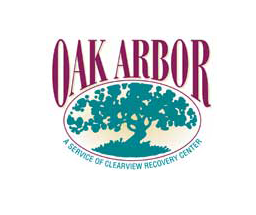6 Tips for Success in Extended Treatments
- By Admin
- •
- 18 May, 2018
- •

After you complete a residential stay at a recovery center, extended treatment programs provide you with a smooth transition to your next phase of sobriety. In extended treatment, you continue to benefit from services such as intensive counseling that help you avoid relapse as you begin to rebuild your life.
Naturally, you want to make the most of this opportunity, and you can use these tips to be successful during your extended addiction treatment.
1. Focus on Stress Management
While you were in a residential facility, you were insulated from many common life stressors. For instance, you may have taken a break from work and avoided negative influences. Now, however, you must begin the process of reentering a world where stress is often unavoidable.
Fortunately, you've already received a few tools to help you manage stress during your residential treatment, and now is the time to use them. Focus on identifying your personal warning signs that stress is building up, such as feeling angry or finding it hard to sleep.
When you notice these signs, make it a habit to implement your stress management strategies. Whether you meditate, go for a jog, or spend a few minutes chatting with another resident, find ways to relax to help avoid relapse.
2. Include Exercise in Your Daily Routine
Recreational pursuits help keep your mind off of cravings, and regular exercise helps to promote positive feelings through the release of endorphins in your body.
As you develop your daily schedule, try to include at least 30 minutes to an hour of exercise in each day to strengthen your body and spirit.
3. Follow Your Treatment Plan
Transitional addiction recovery services are based upon a multiphase treatment plan that helps you progress toward independent sober living. As part of the admissions process, you are provided with a personalized treatment plan that guides you through each phase.
Your personalized treatment plan is likely comprised of a combination of group, individual, and family therapy sessions that all help you to continue to address the underlying causes of your addiction. Additionally, you'll have the opportunity to participate in 12-step support group programs.
Each component of your treatment plan works with the others to provide you with the tools and support you need to recover. Try to attend every one of your therapy sessions and support group meetings so that you benefit from the support of others.
4. Work With Your Sponsor
Sponsorships are an essential part of 12-step programs that provide you with someone to lean on for support. The relationship that you build with your sponsor is based on trust, and you must be willing to reach out to them with your questions.
Whether you are struggling with a craving or just want to go over a question you have after a meeting, keep your sponsor's personal contact information handy so that you can reach out.
5. Avoid Triggers and Negative Influences
As you begin to enter the final phases of your treatment, you will be employed full-time and will spend more time in the real world. While this demonstrates serious progress on your part, the transition to life outside of rehab is also full of perils.
In your therapy sessions, you will learn to identify triggers such as walking past a bar after work. Now, you have an opportunity to practice your strategies for avoiding these triggers. For instance, you can call your sponsor on your way home instead of giving in to a craving.
6. Rebuild Your Family Relationships
Addiction treatment often requires learning strategies that help you mend broken relationships. Invite your loved ones to join you during family counseling sessions at your extended treatment program. In these sessions, you learn techniques to end negative behavior patterns so that your support network grows.
Our extended treatment program at Oak Arbor is designed to help you make a smooth transition in your continued progress toward addiction recovery. Contact a member of our compassionate staff to start your journey today.





